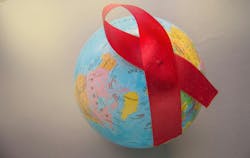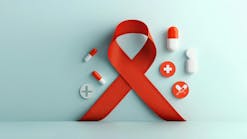By 2030, the World Health Organization (WHO), the Global Fund and UNAIDS are hoping to end the human immunodeficiency virus (HIV) and AIDS epidemic.
An international team of researchers led by Eric Arts, professor at the Schulich School of Medicine & Dentistry, Canada, and Dr Jamie Mann, senior lecturer at the University of Bristol, has brought us another step closer to meeting this goal, by finding an effective and affordable targeted treatment strategy for an HIV cure.
The study, published in Emerging Microbes and Infections, demonstrated the team’s patented therapeutic candidate. The HIV-virus-like-particle (HLP), is 100 times more effective than other candidate HIV cure therapeutics for people living with chronic HIV on combined antiretroviral therapy (cART). If successful in clinical trials, HLP could be used by millions of people living around the world to free them of HIV. This study was done using blood samples from people living with chronic HIV.
HLPs are dead HIV particles hosting a comprehensive set of HIV proteins that increase immune responses without infecting a person. When compared with other potential cure approaches, HLP is an affordable biotherapeutic and can be administered by intramuscular injection – similar to the seasonal flu vaccine.
While cART is effective at treating HIV, it has been unable to completely eliminate the virus from the body. This is because of the virus’ ability to create a “latent reservoir” – where it hides dormant inside of cells, safe from detection. Using blood samples from 32 participants living with chronic HIV from the U.S., Uganda and Canada, who were on stable cART for a median of approximately 13 years, researchers found that HLP was able to specifically target just the immune cells containing latent HIV reservoir and purge these cells of their HIV, a critical step towards an HIV-1 cure. An HIV cure is typically described as therapy and approach that eliminates all HIV without the need of continuous antiretroviral therapy.





